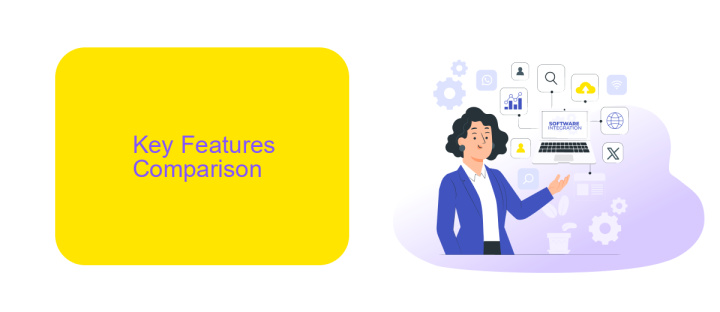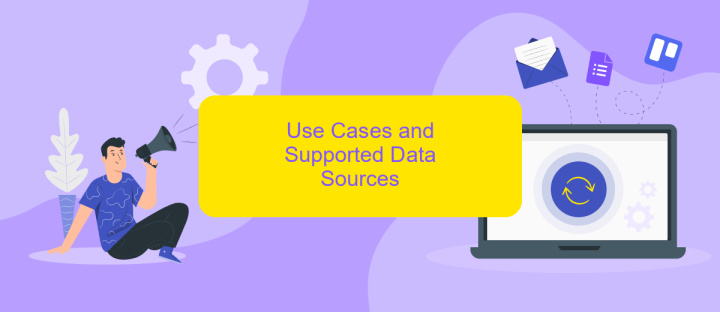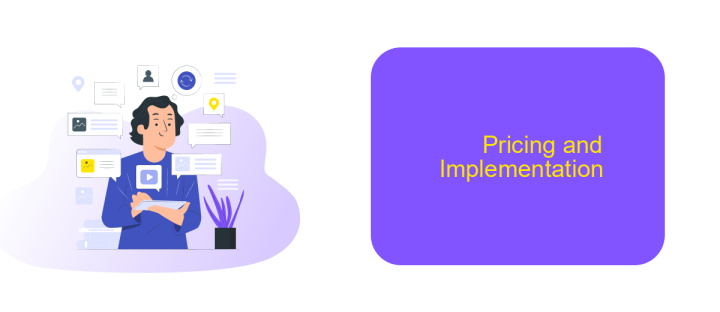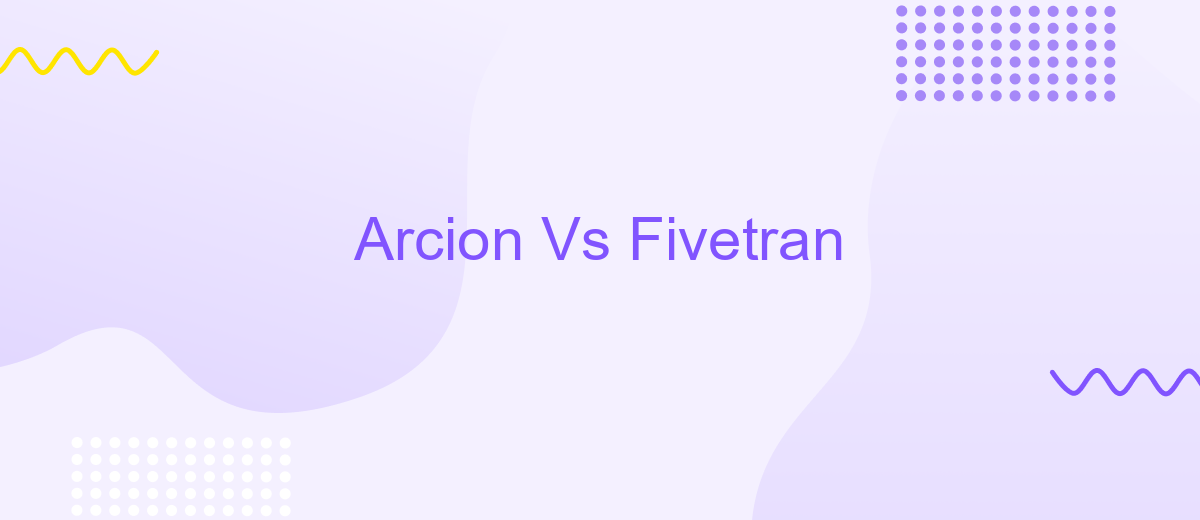Arcion Vs Fivetran
In the rapidly evolving landscape of data integration, businesses are often faced with the challenge of choosing the right tools to streamline their workflows. Two prominent contenders in this space are Arcion and Fivetran. This article delves into a comparative analysis of these platforms, examining their features, strengths, and potential drawbacks to help you make an informed decision.
Data Integration Overview
Data integration is a crucial process for modern businesses, enabling them to combine data from different sources into a unified view. This process helps organizations make informed decisions by providing comprehensive insights. Efficient data integration tools are essential for ensuring seamless data flow and consistency across various platforms.
- Data Consolidation: Combining data from multiple sources into a single database.
- Data Transformation: Converting data into a suitable format for analysis.
- Data Synchronization: Ensuring data consistency across different systems.
- Data Quality Management: Maintaining accuracy and reliability of data.
Services like ApiX-Drive facilitate seamless data integration by providing automated workflows and real-time data synchronization between various applications. These tools not only save time but also reduce the risk of errors, making data integration more efficient and reliable. By leveraging such services, businesses can ensure that their data is always up-to-date and readily available for analysis.
Key Features Comparison

Arcion offers a robust, real-time data replication platform that excels in handling large-scale data migrations with low latency. Its key features include automated schema management, high availability, and support for a wide range of source and target databases. Arcion's architecture is designed for fault tolerance, ensuring data integrity and minimal downtime during migrations. Additionally, Arcion provides advanced monitoring tools to track replication performance and troubleshoot issues promptly.
Fivetran, on the other hand, focuses on simplifying the ETL process with its fully managed data connectors. It offers automated data extraction, transformation, and loading, making it ideal for businesses looking to streamline their data pipelines. Fivetran supports a variety of data sources and destinations, and its pre-built connectors reduce the need for manual coding. For those who require additional customization and integration capabilities, services like ApiX-Drive can complement Fivetran by providing easy-to-configure integrations and automation between various applications and services, enhancing overall data workflow efficiency.
Use Cases and Supported Data Sources

Arcion and Fivetran are powerful tools designed for data integration and ETL (Extract, Transform, Load) processes, each catering to different use cases and supporting a variety of data sources.
- Arcion: Ideal for real-time data replication and migration, Arcion supports use cases such as cloud data migration, disaster recovery, and real-time analytics. It connects to data sources like Oracle, MySQL, PostgreSQL, and more.
- Fivetran: Best suited for automated data pipelines, Fivetran is used for data warehousing, business intelligence, and reporting. It supports a wide range of data sources including Salesforce, Google Analytics, and various SQL databases.
For businesses looking to streamline their data integration processes, ApiX-Drive can offer additional support by simplifying the setup and management of integrations between these tools and other services. ApiX-Drive's user-friendly interface and automation capabilities ensure that data flows seamlessly across platforms, enhancing the efficiency and reliability of your data operations.
Pricing and Implementation

When it comes to pricing, Arcion and Fivetran offer distinct models tailored to different business needs. Arcion typically provides a subscription-based pricing model, which can be more predictable for budgeting purposes. On the other hand, Fivetran often uses a consumption-based pricing model, charging based on the volume of data processed, which can be advantageous for businesses with fluctuating data needs.
Implementation of these platforms also varies. Arcion is known for its ease of setup, often requiring minimal technical expertise, making it a good choice for companies with limited IT resources. Fivetran, while also user-friendly, may require more initial configuration to optimize data flows and integrations.
- Arcion: Subscription-based pricing
- Fivetran: Consumption-based pricing
- Arcion: Minimal technical setup
- Fivetran: More initial configuration
For businesses looking to streamline the integration process, leveraging services like ApiX-Drive can be beneficial. ApiX-Drive offers tools to automate and simplify the integration of various data sources, reducing the time and effort required for setup. This can be particularly useful when dealing with complex data environments.
Conclusion and Recommendations
In conclusion, both Arcion and Fivetran offer robust solutions for data integration, each with its own strengths and unique features. Arcion excels in real-time data replication and is particularly well-suited for enterprises requiring high availability and low latency. On the other hand, Fivetran provides a more user-friendly interface and a wide range of pre-built connectors, making it an excellent choice for businesses looking for ease of use and quick deployment.
For organizations seeking to streamline their data integration processes further, considering additional tools like ApiX-Drive can be beneficial. ApiX-Drive offers a seamless way to connect various applications and automate workflows, complementing the capabilities of both Arcion and Fivetran. Ultimately, the choice between Arcion and Fivetran will depend on your specific business needs, technical requirements, and the complexity of your data environment. Carefully evaluate each option to determine which aligns best with your strategic goals.


FAQ
What are the main differences between Arcion and Fivetran?
Which service is better for real-time data replication?
Can both Arcion and Fivetran handle large volumes of data?
What kind of support do these services offer for integration and automation?
Are there any limitations to be aware of when using Arcion or Fivetran?
Apix-Drive is a universal tool that will quickly streamline any workflow, freeing you from routine and possible financial losses. Try ApiX-Drive in action and see how useful it is for you personally. In the meantime, when you are setting up connections between systems, think about where you are investing your free time, because now you will have much more of it.

